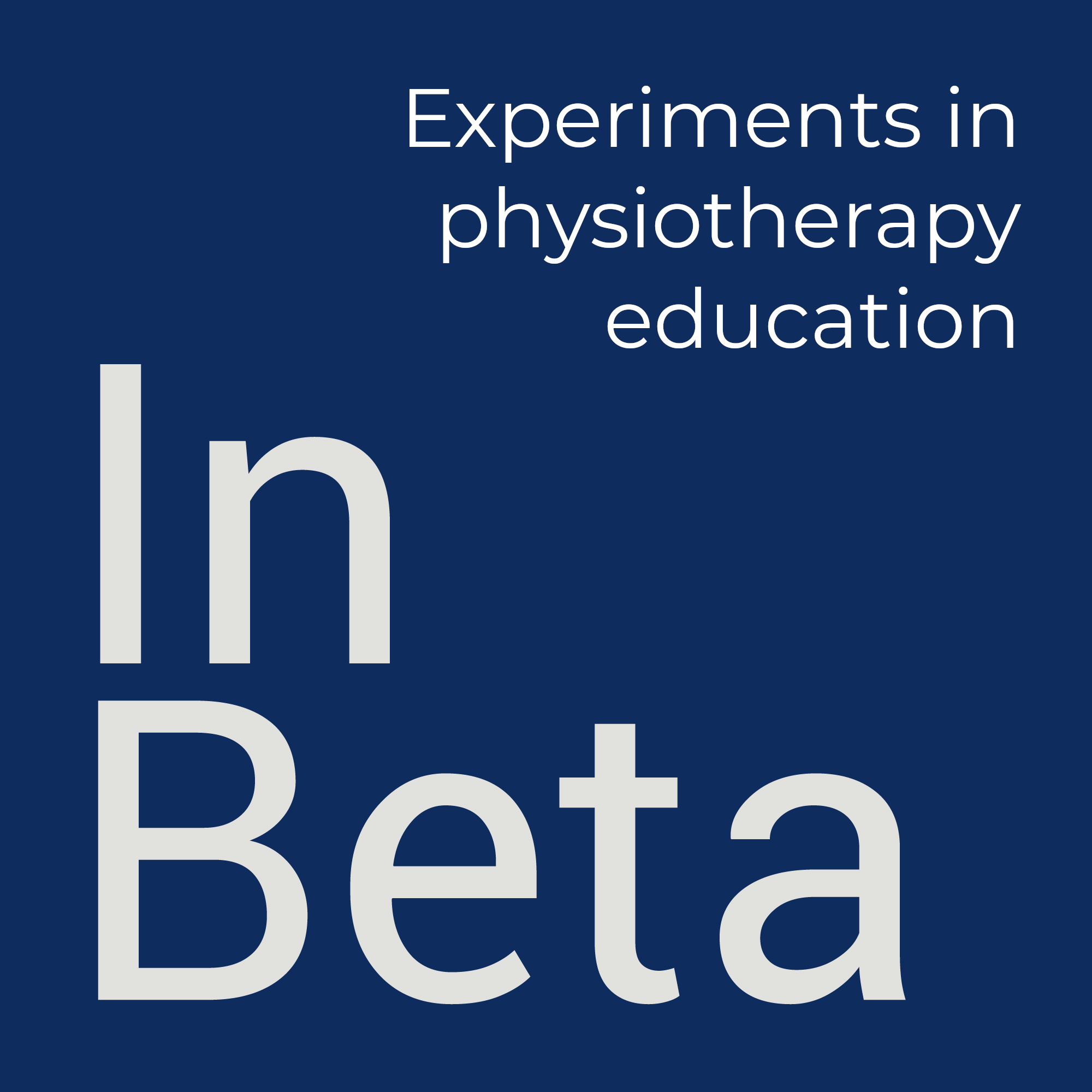Hi everyone
This is the first of what we hope will be a monthly newsletter from In Beta where we highlight a few things that we think you might find useful, thoughtful, or just plain interesting. The format is really simple: we’ll share three items each month, including 1 podcast (not our own), 1 research paper, and 1 other thing. They’ll probably not be specific to physiotherapy education and are more likely to be things that spark interest or help us to think differently about what we do. If this sounds like something you might like delivered to your inbox, you can join the In Beta community by subscribing to the website. If you have anything that you’d like to share in the newsletter, let us know via the contact page or on Twitter (#inbeta). So, without further ado here’s the first In Beta newsletter.
Podcast: Daniel Kahneman wants you to doubt yourself. Here’s why.
In this episode of the TED Interview podcast, Chris Anderson talks to psychologist and Nobel laureate, Daniel Kahneman, whose work on behavioural economics has shaped much of the conversation around bias and heuristics over the past few decades. This matters because many (maybe all) of the decisions we make in education are influenced by our unconscious biases and beliefs around teaching and learning. Unless we’re aware of how our intuitions reliably fail we may keep making the same mistakes and never even be aware of it.
What shapes happiness — the experiences we have, or the stories we tell ourselves about them afterwards? When and how does our intuition reliably fail? And why is overconfidence the fatal flaw we should all watch out for?
Article: Curiosity and medical education

Dyche, L., & Epstein, R. M. (2011). Curiosity and medical education: Supporting curiosity in medical education. Medical Education, 45(7), 663–668. https://doi.org/10.1111/j.1365-2923.2011.03944.x
This is a qualitative literature review that explores the intentional integration of curiosity-driven learning in a medical curriculum. I thought it was useful to include because 1) it presents the findings of a qualitative literature review in Medical Education, and 2) the topic is unusual with respect to the way that medical curricula are traditionally designed. The idea of making space in a curriculum may seem at odds with the fact-based, highly structured medical programme and this article presents some useful ideas around how these two approaches can balance out. The article concludes with:
Curiosity , inquisitiveness and related habits of mind can be supported in medical education through specific, evidence-based instructional approaches. Medical educators should balance the teaching of facts, techniques and protocols with approaches that help students cultivate and sustain curiosity and wonder in the context-rich, often ambiguous world of clinical medicine.
Blog post: If basic research were conducted under the conditions of educational research
Note: It’s completely unintentional that the blog post featured here is my own. I started with the WCPT tweet, which reminded me of the blog post, which led to the article, which led to Ben and I meeting. And then I couldn’t go back.
At the recent WCPT conference I was in a session where the speaker was highlighting some of the challenges of conducting education research, which led to my summary tweet below:
Medical education research is often poorly designed, inadequately funded, not well theorised, small scale, with outcomes that are often confounded with uncontrolled variables in the environment. Ready? Begin. #WCPT2019— Michael Rowe (@michael_rowe) May 13, 2019
It reminded me of a post I wrote in 2013 after attending an education research workshop where we were given a handout that I couldn’t find online anywhere. The premise was that the challenges you experience when conducting education research are so far removed from any controlled environment that to pretend otherwise is delusional. I subsequently co-wrote a paper on the use of randomised controlled trials in educational research where we explored some of the
Randomised controlled trials in educational research: Ontological and epistemological limitations #criticalphysio https://t.co/7mupLFvtQB— Michael Rowe (@michael_rowe) May 10, 2016
Link: If basic research were conducted under the conditions of educational research.
So there you have it; our first newsletter. If you think that it was useful or interesting and want to share it with others, use the #inbeta hashtag on Twitter. We’d love to get some feedback on whether you think this is a good idea (or not), as well as suggestions for things to share. You can do this by commenting on this page, sharing your thoughts on Twitter, or by using our contact page.
If you’d like to get more of this kind of thing delivered straight to your inbox you can sign up below.
